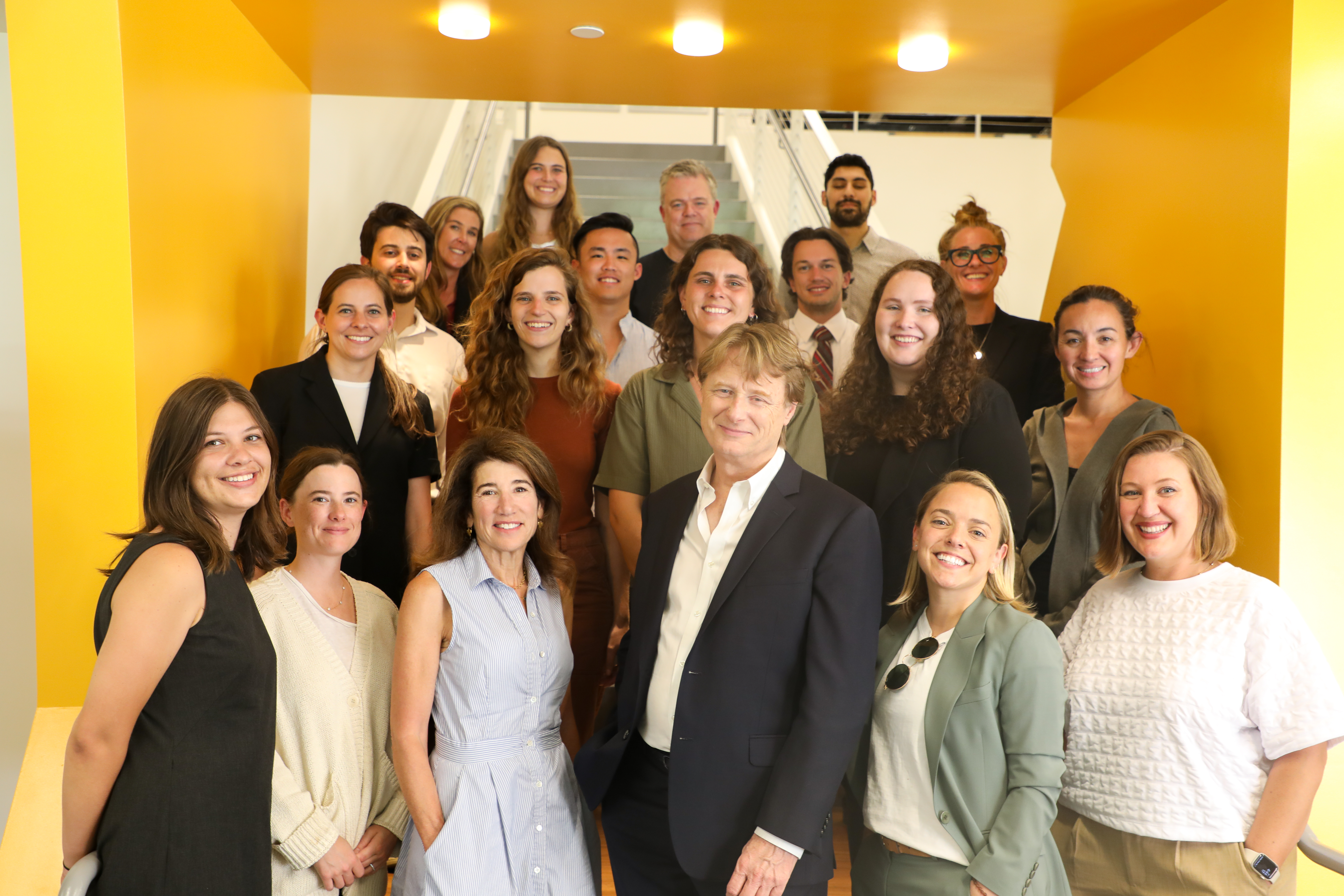
Sarah Cook ’23 had been a clinical student at the Juvenile Innocence & Fair Sentencing Clinic (JIFS) for less than a month, but that was enough time for her to make a significant impact on the wellbeing of her client and demonstrate that she has the potential to be a force in the California judicial system.
Cook was assigned to represent a client suffering from Stage-3 kidney failure and various other health issues while serving a life-without-parole sentence for a crime committed as a juvenile. In Cook’s first appearance before the Long Beach Court, the judge refused to carry out a directive from the Court of Appeal until the client came to court in person. “The district attorney made an argument [for requiring the client’s presence] based upon an unnamed and possibly nonexistent statute,” said supervising JIFS Staff Attorney Marisa Harris ’17. “Our client suffers from serious health impairments, and frankly, a trip down to county jail could kill her.”
“I was surprised and frustrated when the lower court refused to comply with the appellate court’s order,” said Cook. “The directive was very clear on its face that the matter should be expedited, and the case should be transferred to juvenile court. In all my preparation for the hearing, it never occurred to me that the court could entirely refuse to comply with the order and put our client at great risk to her health.”
Concerned for her client’s wellbeing, and unsatisfied with the Long Beach Court’s ruling and refusal to carry out a directive of the Court of Appeal, Cook met with Harris at Steelcraft Coffee in Long Beach. There, they spent the next five hours drafting a writ of mandate to the Court of Appeal for a stay of the removal order and reversal of the court’s holding. “Steelcraft is an outdoor space filled with eateries, including Smog City Brewing, but I promise we stuck to coffee until the writ was filed that same day,” said Cook.
Two days after the writ was filed, the Court of Appeal granted the stay and requested a response from the district attorney’s office. One day later, and only one week after the Long Beach Court’s ruling, the Court of Appeal issued a writ mandating the court to reverse its ruling and carry out its prior directive. This was both Cook's first time appearing in court and her first time filing a petition for writ of mandate with the Court of Appeal. “This case is hard, and writs of mandate are hard to win,” said Harris. “The Court of Appeal almost never acts within a week, and no one files a writ on the same day as the lower court’s ruling. Sarah pushed hard and we got it done. Our students, especially Sarah Cook, can do anything a lawyer can do—often even better than a lawyer.”
“Marisa and I were actually visiting our client in prison when the Court of Appeal issued the writ,” said Cook. “It was cool to leave the prison and find that news on our phones. We immediately notified our client of the win, and she was thrilled.”
Cook joined JIFS for the opportunity to work on criminal justice reform issues, with a specific interest in post-conviction work. “I was excited to advocate for real clients, to work on substantive writing projects, and to learn more about the California criminal courts. Being a part of JIFS has certainly met my expectations, and even exceeded them,” said Cook. “It has been uniquely rewarding to advocate for incarcerated clients, and to practice legal research and writing in the context of a real case. The JIFS faculty and students care deeply about their clients, and it has been fantastic to be surrounded by colleagues who are similarly passionate about criminal justice reform.”
Sarah will be working at a law firm next summer, and she hopes to pursue a judicial clerkship after graduation. Her long-term goal is to enter public interest practice, specifically in criminal justice reform. “I am really loving the work I am doing with JIFS this year, and I hope I will continue to do work like this throughout my career,” said Cook.
The Juvenile Innocence & Fair Sentencing Clinic is part of the Loyola Social Justice Law Clinic, which houses the law school’s 20-plus live-client clinics. It is one of three clinics comprising the Center for Juvenile Law & Policy. The CJLP was created in 2004 to foster systemic reform of the juvenile justice system by participating in and encouraging research, discussion and advocacy in the field and developing policy initiatives for systemic change. It provides a place for stakeholders to meet and discuss issues in an atmosphere that promotes constructive cooperation. Since its inception, the CJLP has trained more than 250 new attorneys and dedicated almost 80,000 pro bono hours to more than 500 children in 1,000-plus delinquency cases in L.A.’s neediest communities. Learn more www.lls.edu/cjlp.